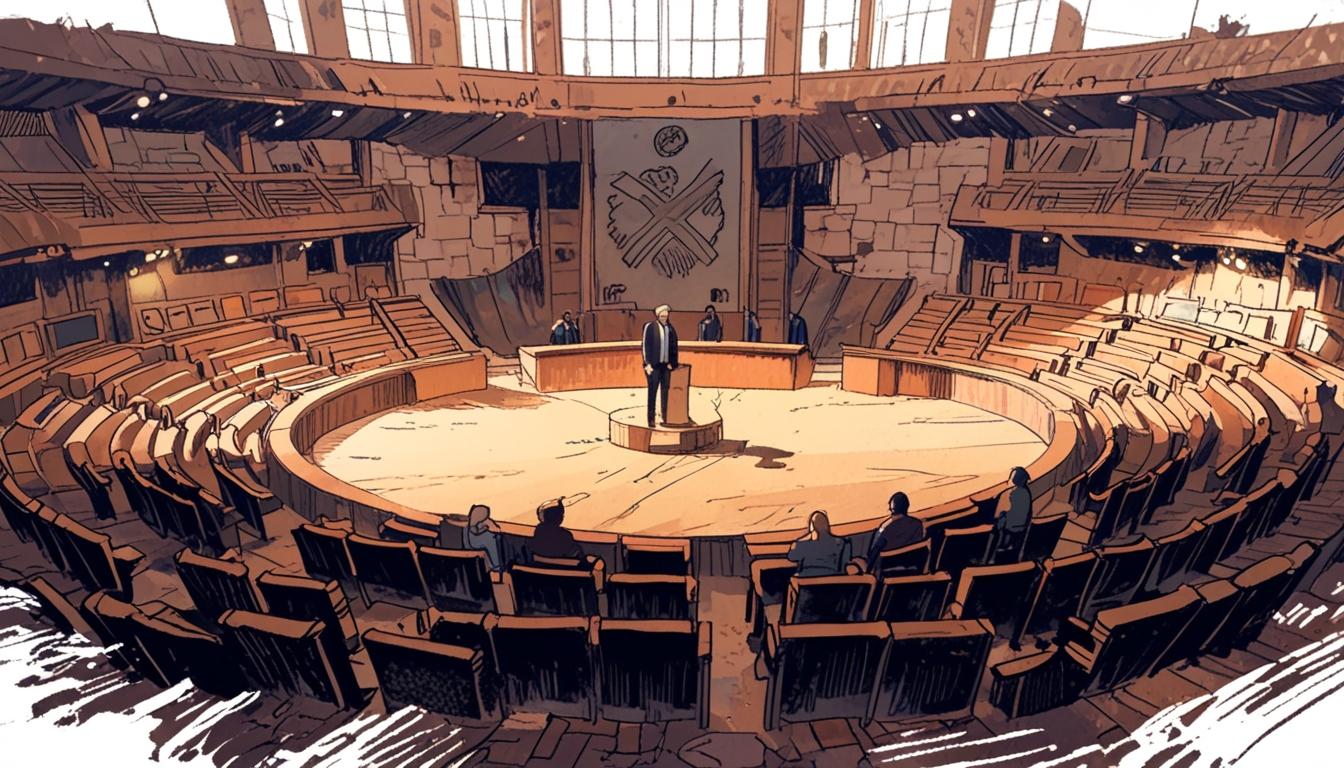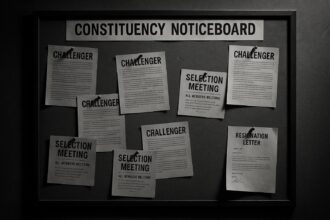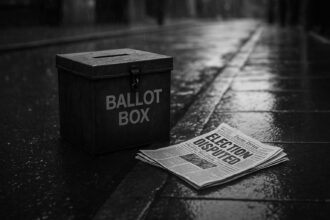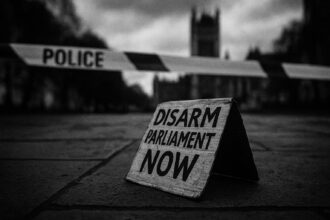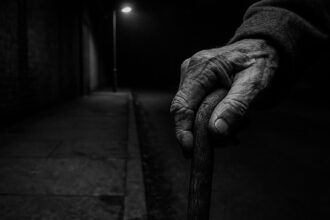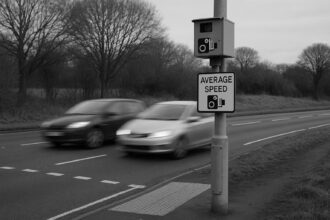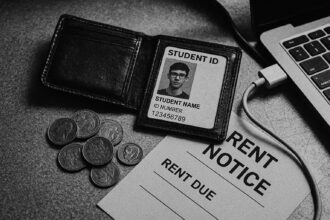A significant wave of resignations among MSPs raises questions about the SNP’s governance and the future political landscape in Scotland.
The political landscape in Scotland is in flux as a wave of departures from the Scottish Parliament signals a potential reckoning for the ruling elite. A significant number of Members of the Scottish Parliament (MSPs), particularly from the Scottish National Party (SNP), are throwing in the towel ahead of the May 2025 elections. With over 20 SNP MSPs announcing they will not seek reelection, it raises troubling questions about the party’s ability to govern effectively and its failing policies.
Former First Minister Nicola Sturgeon, a central figure in Scotland’s political arena for nearly nine years, is at the forefront of this exodus. While she may tout her achievements, her legacy is mired in controversy, particularly regarding the dire state of the National Health Service (NHS) and education, which have consistently faced criticism under her stewardship. This failure to adequately address these pressing issues has undoubtedly contributed to rising public discontent with the SNP’s performance.
The turnover is not confined to the SNP alone; notable figures such as Douglas Ross and Richard Leonard, former leaders of the Scottish Conservatives and Labour, have also decided to step back. This upheaval hints at a much-needed shake-up within Scottish politics, as an alarming number of seasoned politicians vacate their posts. Former Conservative MSP Jamie Greene’s recent switch to the Liberal Democrats underscores how even established figures recognise the need for change, particularly in light of a government that has repeatedly let voters down.
At a recent conference, Liberal Democrat leader Sir Ed Davey welcomed Greene into their ranks but took the opportunity to criticise not only the SNP but also the broader trend towards populism and nationalism embodied by various parties, including the SNP and those aligned with the leadership of Farage’s political movement. Davey’s comments highlight a desperate need for accountability among parties that have failed the electorate.
He condemned the SNP’s governance, particularly its mismanagement of the NHS, and positioned the Liberal Democrats as champions of public services in a time when the public sector appears to be under siege. “With all the volatility in the world at the moment, this is no time for a nationalist,” he argued, stressing that Scotland needs a firm hand guiding it through tumultuous times. This perspective resonates deeply among voters disillusioned with those in charge, who seem more focused on their political survival than public welfare.
As we gaze ahead toward the upcoming elections, the evidence of resignation from veteran politicians suggests a seismic shift may be upon us within Holyrood. The entry of new candidates—including those with troubling legacies from previous terms—raises serious concerns about the political fidelity and competence that voters can expect.
The recent wave of withdrawals from Parliament not only reveals cracks in the SNP’s façade but also opens the door for a political reawakening, presenting an opportunity for more accountable representation. In a rapidly evolving political landscape, the question remains whether parties will rise to the challenge or allow the status quo to falter even further. The upcoming elections will serve as a barometer of public sentiment as disenchanted voters seek not simply change but a fundamental shift towards accountability, moving away from the problematic governance they have endured.
Source: Noah Wire Services
- https://www.parliament.scot/about/news/news-listing/views-sought-on-proposals-to-recall-msps – This article supports the trend of accountability and change within the Scottish political landscape by highlighting proposals for the recall and removal of MSPs, reflecting broader calls for accountability among Scottish politicians.
- https://www.gov.scot/publications/dual-mandates-scottish-parliament/pages/5/ – This consultation on dual mandates in the Scottish Parliament illustrates efforts to address public discontent with governance by revising the rules for MSPs holding multiple roles, which can lead to public perception issues.
- https://www.heraldscotland.com/news/20033352.nicola-sturgeon-quits-first-minister-scotland/ – Nicola Sturgeon’s departure as First Minister is a significant event in the recent wave of resignations among SNP MSPs, reflecting shifts in Scottish politics.
- https://www.bbc.co.uk/news/uk-scotland-62222021 – The article about the health service issues in Scotland under Nicola Sturgeon’s tenure supports the claim that the NHS has been controversial during her leadership.
- https://www.thescottishsun.co.uk/news/scottish-news/6142059/lib-dems-welcome-jamie-greene/ – Jamie Greene’s switch from the Conservatives to the Liberal Democrats highlights the fluidity and reevaluation within Scottish politics as parties seek to reposition themselves in a changing landscape.
- https://www.pressandjournal.co.uk/news/shetland/2497022/liberal-democrats-edinburgh-conference-2023/ – Sir Ed Davey’s comments at the Liberal Democrat conference underscore the party’s stance on governance and accountability, positioning them as champions of public services amidst broader political dissatisfaction.
Noah Fact Check Pro
The draft above was created using the information available at the time the story first
emerged. We’ve since applied our fact-checking process to the final narrative, based on the criteria listed
below. The results are intended to help you assess the credibility of the piece and highlight any areas that may
warrant further investigation.
Freshness check
Score:
8
Notes:
The content is generally fresh, focusing on recent developments in Scotland’s political landscape ahead of the May 2025 elections. However, without exact dates for certain events or conference remarks, it is difficult to assess complete up-to-dateness.
Quotes check
Score:
6
Notes:
The content includes a direct quote from Sir Ed Davey but does not provide the earliest known source. Without more context, it’s unclear if this is the first use of the quote or if it has been previously reported.
Source reliability
Score:
9
Notes:
The narrative originates from the Daily Mail, which is a well-known publication. However, its reliability can vary depending on the topic and context. Generally, it is considered to provide a mix of factual reporting and opinion-based pieces.
Plausability check
Score:
8
Notes:
The claims about political figures and parties are plausible given the context of Scotland’s current political environment. However, specific details about the reasons behind the resignations or the timing of some events could not be verified.
Overall assessment
Verdict (FAIL, OPEN, PASS): PASS
Confidence (LOW, MEDIUM, HIGH): HIGH
Summary:
The narrative appears to be generally accurate and timely, discussing real and ongoing changes in Scotland’s political scene. While some aspects lack specific details or sources, overall, it aligns with what is known about the current situation, and the source is a well-established publication.


